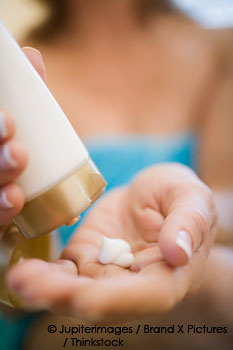Dr Mercola articles emu oil
More Evidence To Avoid Conventional Skin Care Products.
This Popular Moisturizer Applied to Mice for 17 Weeks Got 69% More Tumors.
Three All Natural, Super Green Skin Care Alternatives
Posted By Dr. Mercola | June 21 2011 | 229,088 views
 A study has found that topical applications of moisturizers such as Dermabase, Dermovan, Eucerin Original Moisturizing Cream, or Vanicream could increase skin cancer risk.
A study has found that topical applications of moisturizers such as Dermabase, Dermovan, Eucerin Original Moisturizing Cream, or Vanicream could increase skin cancer risk.
Irradiated mice who were treated with the moisturizers exhibited a significant increase in their rate of tumor formation and increase in tumor size per mouse. Treatment of the mice with Dermabase, Dermovan, Eucerin, or Vanicream for 17 weeks increased the total number of histologically characterized tumors by 69 percent.
According to the study, as reported by Green Med Info:
"The results indicate that several commercially available moisturizing creams increase the rate of formation and number of tumors when applied topically to UVB-pretreated high-risk mice. Further studies are needed to determine the effects of topical applications of moisturizing creams ... in humans."
This also applies to tanning oils and lotions—which many of you may be using right now with summer in full swing—as well as the baby oil or lotion that many parents unwittingly slather on their babies.
Sources:
Three Green Beauty Alternatives
Posted By Dr. Mercola | July 15 2008 | 61,573 views
Here are a few of my recommendations:
All-natural moisturizers -- Pure emu oil is a great alternative to facial- and body moisturizers and lotions, as is pure coconut oil. It’s a fantastic moisturizer and a potent source of the beneficial fat lauric acid.
All-natural acne fighter -- Rubbing just a drop of oregano oil on a breakout can speed up the healing and prevent unsightly scarring without resorting to harsh commercial acne medication (remember to wash your hands thoroughly afterwards).
All-natural deodorant – I advise stopping ALL antiperspirants. Common soap and water works fine. If you still need further help then try a pinch of baking soda mixed into water as an effective all-day deodorant.
All-natural shampoo and soaps – You can find clean, non-chemical soaps at many health food stores.
Finding recipes for your own homemade beauty products is a breeze when you have access to the internet. Just Google “homemade cosmetics” for more than 400,000 pages of recipes and instructions. We recommend that you check out Environmental Working Group’s Skin Deep Cosmetic Safety Database for many healthy alternatives.SOURCE: www.mercola.com July 15,2008


Moisturizing Creams with Mineral Oil Can be Tumorigenic
Watch Out for Tanning Oils Containing Mineral Oil!
Mothers: Beware What You Put on Your and Your Baby's Skin
You Can Absorb MORE Toxins from Skin Care Products than Food
Safer Alternatives